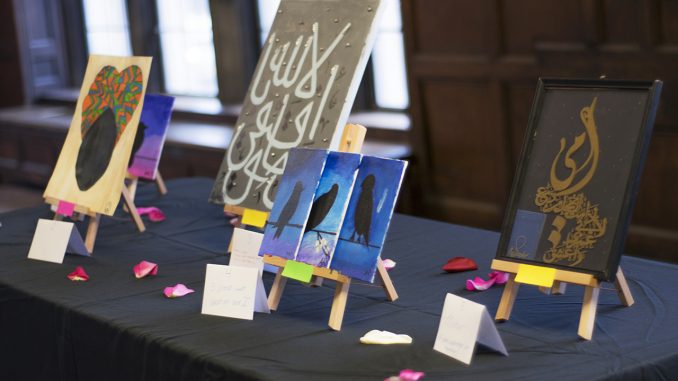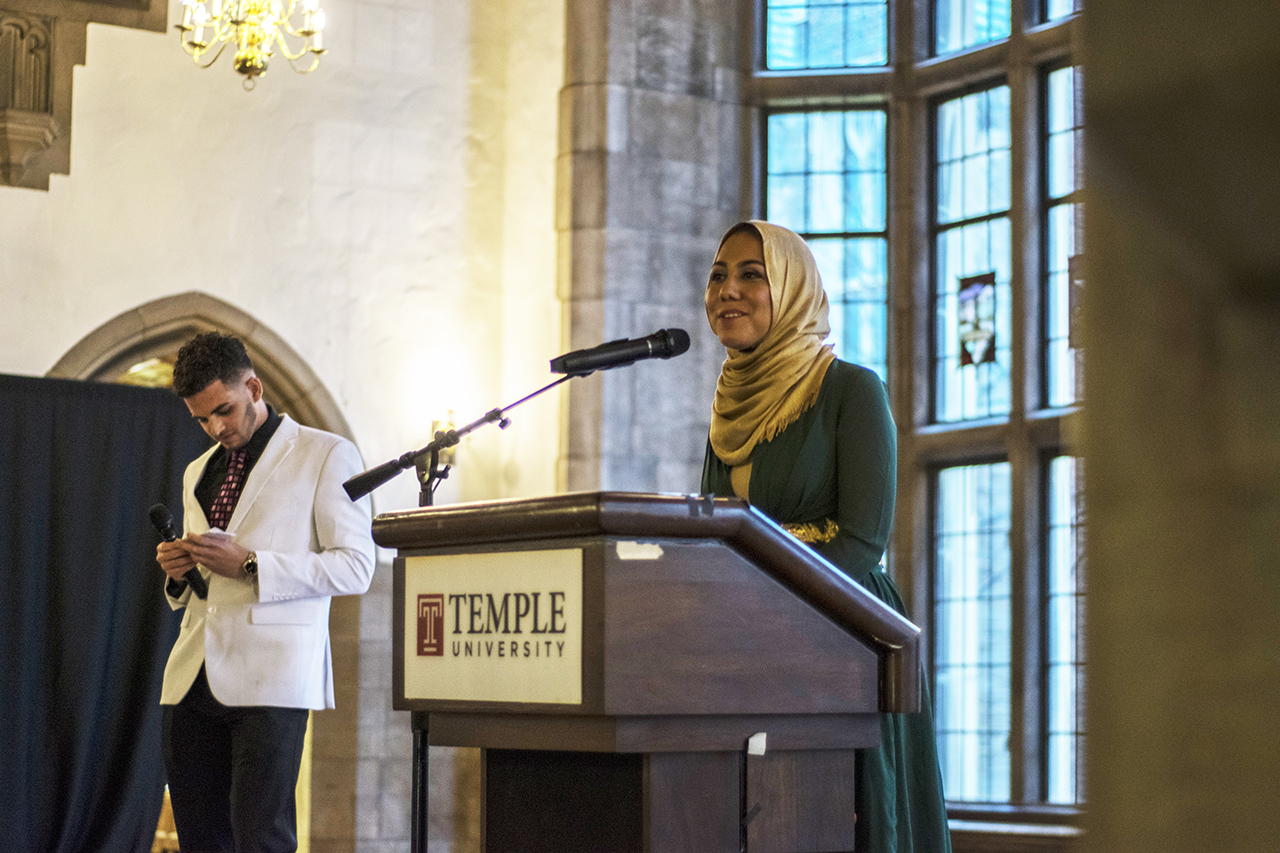
While helping Temple’s United Muslim Relief chapter plan this year’s fundraising event, Jide Soyinka, the Organization of African Students’ fundraising chair, brought up an idea that hits home for him.
“Multiple times my mom has told me that I almost died and she almost died while giving birth to me,” said Soyinka, a junior biology major who was born in Nigeria. “The health care, the supplies, the doctors, they aren’t as well-informed and the supplies aren’t the top-notch supplies you would get here in the U.S.”
Every year UMR collaborates with a different student organization to hold a fundraising event, highlighting a specific area in the world less fortunate than the United States. This year, they reached out to OAS to focus on Nigeria’s maternal health care crisis. The groups have been working on “Ekaabo: A Night in Nigeria” since the end of Fall 2017.
The organizations hosted “Ekaabo” in Mitten Hall on Sunday. The student groups aimed to raise awareness about Nigeria’s maternal health crisis with a black-tie event that included an authentic Nigerian dinner, an art auction and dance performances.
Georgia Owusu, the president of OAS, said she hopes the event gets people thinking about these issues and encourages action.
“We would like to bring more awareness to the maternal care facilities and the lack thereof in parts of Nigeria,” Owusu said. “Infertility rates are really high in Nigeria and it’s all just because of a lack of resources and lack of infrastructure. So, the purpose of this event was to…bring more awareness, healthy babies into society, healthy motherhood, [and] healthy life into Nigeria.”

Nigeria is the second-largest contributor to maternal mortality rates and child deaths taking place under 5 years old. Additionally, the majority of newborn deaths in Nigeria occur within the first week after a baby is born.
The money raised at the event will go first to UMR’s national headquarters and then be donated to the Wudil Zone, a local government area in Kano State in northern Nigeria. The proceeds will fund, equip and stock delivery rooms in multiple maternal health care facilities across the Wudil Zone.
“There’s a lot of strife in northern Nigeria and…that’s where the majority-Muslim population is,” Soyinka said. “We are collaborating with a Muslim organization, so we felt it was appropriate to be sending it to a majority Muslim population.”
Soyinka added that OAS chose to highlight the Nigerian maternal health care crisis because Philadelphia has a large Nigerian population.
“I’m sure a bunch of Nigerians here in Philly from there, whether they know it or not, were somehow affected, their parents were affected or people they know were affected by this,” Soyinka said.
“Ekaabo” featured performances by members of the Uzuri Dance Company, a student group that strives to empower women of color. The art sold in the auction was displayed throughout the evening and included sculpture, painting and photography pieces donated by Philadelphia artists.
Josh Lacerna, a junior finance major, also performed a duet with Aaron X. Smith, an Africology and African American studies professor, known for rapping during his classes. Lacerna and Smith’s performance was titled “Temple Love,” and Lacerna sang and played guitar while Smith rapped. In the lyrics, the two discussed the importance of uniting different cultures and religions at Temple.
“I’m hoping that they listen, whether Muslim or Christian,” Smith rapped. “This university is blessed just because of the diversity.”
The authentic Nigerian dinner consisted of jollof rice, a traditional West African stew, chili peppers and meat, fish or fried plantains.

Molefi Asante, the Africology and African American Studies department chair, was the keynote speaker of the event. He focused on the historical background of Nigeria and future projections related to the country’s population growth in his speech.
Asante said the average age of the Nigerian population is about 19, while Europe’s is about 49. He added within 30 to 40 years, Nigeria will be one of the most populous nations in the world. The Nigerian city of Lagos alone is home to 21 million people, according to the Lagos State government.
“The challenges on the health care system are going to be enormous, and only with the diversification of the economy will Nigeria be able to support such a situation where they will have so many different people,” Asante told The Temple News.
Soyinka said he hopes the event taught people about Nigerian health care systems and connected native Nigerians with their home country.
“A lot of people coming into the banquet…won’t know what’s going on, because a lot of the stuff we’re talking about isn’t the type of stuff you’ll read in newspapers here in America or watch on TV,” he said. “We try to make sure people here on campus know about stuff that’s going on back at home and have an understanding of what’s happening back in Africa.”
“We take this as our chance to help support and uplift our homes and help the people at home suffering even from here,” Soyinka added. “At the end of the day, this is helping bring up children. Children are the future, so by us highlighting maternal health care, it’s highlighting the well-being of our future.”


Be the first to comment